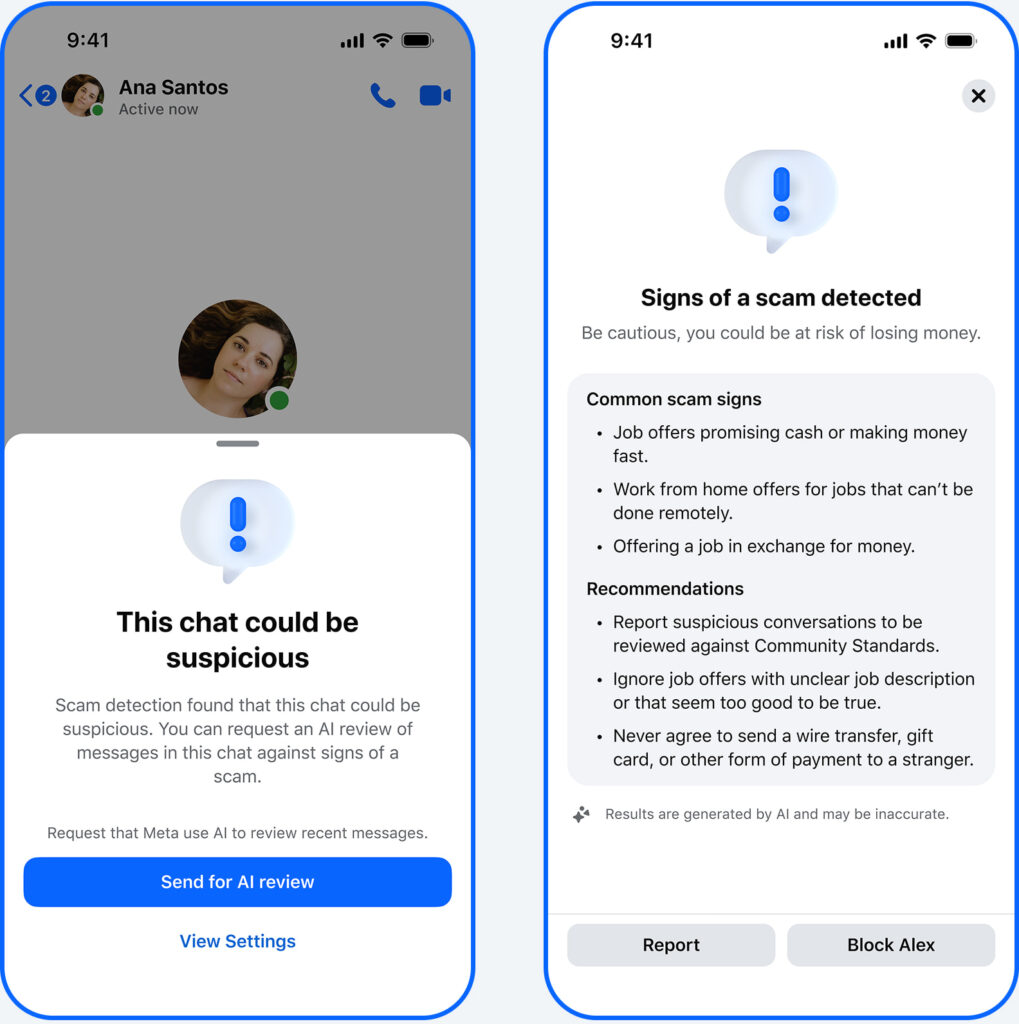
Meta has introduced new anti-scam tools for WhatsApp and Messenger aimed at shielding users from increasingly sophisticated online fraud attempts.
Meta’s latest threat intelligence shows a significant uptick in sophisticated fraud schemes targeting seniors. Since the beginning of 2025, the company has disrupted nearly 8 million fraudulent accounts across Facebook and Instagram, many linked to cross-border criminal scam centers operating in Myanmar, Laos, Cambodia, the UAE, and the Philippines. These actors exploited messaging platforms, dating apps, crypto-related services, and fake customer support pages to manipulate victims, often with the aim of gaining access to personal information or tricking them into sending money.
The company’s efforts were informed by threat intelligence from Graphika, a social network analysis firm that collaborated with Meta to identify trends in scams targeting older users. This included fraudulent schemes such as fake debt relief services, impersonation of FBI crime recovery portals, and bogus customer support accounts that reply to public comments to lure users into private messages.
Meta’s new anti-scam features include:
- Screen-sharing Warnings on WhatsApp: A newly introduced warning alerts users if they attempt to share their screen during a video call with someone not in their contact list. This aims to prevent fraudsters from convincing victims to reveal sensitive data like banking credentials or one-time passwords.
- AI-Powered Scam Detection on Messenger: In a test phase, Messenger now flags suspicious messages from new contacts, prompting users to submit chat logs for AI review. If a scam is detected, the system will provide educational prompts and options to block or report the sender.
- Passkey-Based Login: Users across Facebook, Instagram, and WhatsApp can now enable Passkeys, allowing authentication through biometric methods like fingerprints or facial recognition, adding an extra layer of security against unauthorized access.
- Security and Privacy Checkups: Revamped Security Checkup tools on Facebook and Instagram help users review password hygiene, active sessions, and two-factor authentication. A similar Privacy Checkup on WhatsApp walks users through group privacy settings and other controls.

Meta has also taken down over 21,000 pages and accounts pretending to be customer service entities, a common attack vector where scammers intercept user complaints and redirect victims to fraudulent websites or forms.
This latest push aligns with Meta’s broader strategy of cross-platform defense and industry collaboration. The company is now a member of the National Elder Fraud Coordination Center, joining firms like Google, Microsoft, and Capital One in an alliance to combat large-scale fraud targeting seniors in the US.







Leave a Reply